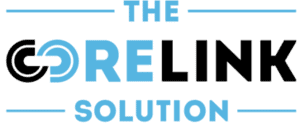Are Skills Overtaking Degrees In 2025? Here’s What You Need To Know
If you’ve heard that skills are overtaking degrees in the workforce in 2025, you are not alone.
The hiring process, as it stands, is stressful for both the applicant and the employer. An employer hires a new candidate fit for the role, only to find they still need training to gain essential skills needed for the position.
While perfectly qualified applicants that have the experience but lack the degree are disregarded- resulting in precious talent being underutilized and companies spending thousands of dollars on upskilling new hires.
Demand for a work-ready employee is at an all-time high, and we are now seeing a shift from education-based to skill-based requirements.
But what does that mean for companies and job seekers alike? And how can both prepare for the shift successfully?
Let’s break it down together!
What do we know?
A November 2023 survey of 800 U.S. employers offers insight into how companies have, and plan to handle college degree requirements in the future and what other tools they’re using to evaluate job candidates.
- 55% of companies have already eliminated bachelor’s degree requirements, and 45% will plan to do the same for some positions.
- 70% say they did so to create a more diverse workforce
- 4 in 5 employers value experience over education when evaluating job candidates
- Two-thirds of employers have candidates complete test assignments
- Ninety-five percent of respondents say their companies currently require bachelor’s degrees for at least some roles.
- Companies that eliminated some bachelor’s degree requirements in last year are far more likely to continue shedding these requirements than those that did not.
- 75% of employers say removing this requirement for job applicants has improved their company.
What does this mean for employers and organizations?
Organizations and employers will notice an expansion of the talent pool and increased diversity. By removing degree requirements, opportunities are accessible to a broader range of candidates, and reaching individuals from non-traditional educational backgrounds will promote diversity and inclusion.
As skill demands increase, organizations should invest in continuous learning. This will enable the upskilling and reskilling of their workforce. Learning and Employment Records(LERs) can support this by tracking employee growth and aligning training programs with the skills needed for future roles.

What does this mean for employees?
Employees will have more opportunities to start or change their careers. Without discrimination based on their degree status, doors will open for them to expand and grow. Some are looking to step up within their own company or pursue a career that can help them utilize and sharpen their skills. This is a great time for applicants to take advantage of this shift. Job seekers beware: Pay closer attention to job and role descriptions, as keywords in your resume will be invaluable in being found by search engines.
How can you adopt this skill-based approach without compromising the quality of your hires?
Focusing on tangible skills and experience indicators is an excellent starting point. Offering training can help you get to know prospects better while ensuring they are equipped with the necessary skills for their duties, increasing the chances of a successful hire. Incorporating these assessments during the application process can further refine your candidate pool, ensuring the training phase is more productive rather than just another round of eliminations. Simple tools like multiple-choice tests or real-life scenario questionnaires can be effective. These methods, tied directly to the skills required for the position, are straightforward to create and evaluate without being overly time-consuming.
What to look for in place of a College Degree:
-
Consider hiring someone with no degree and a long tenure: Retaining talent is more cost-effective than hiring new employees, and the length of time at a company is a great metric for determining whether a candidate has a strong work history. If hiring outside your organization, consider employment tenure a leading indicator of whether your investment will pan out.
- Identify needed skills: When creating a job description, it’s important to carefully assess what a candidate needs to succeed in the role. Additionally, you can evaluate the significance of specific skills in the position compared to the importance of a standard degree. Identifying the skills needed helps in your search for a candidate.
-
Recognize Skills in different backgrounds: Diversity opens the door to opportunity and creativity. Soft skills, for example, are in high demand and useful no matter what the background. The ability to communicate, lead, and have a high emotional IQ are indicators of success and should not be ignored when present in an applicant.
- Don’t undervalue alternative credentials:
When you look at these unique credentials on a resume they signal the candidate’s drive for professional growth and discipline to acquire new skills on their own time. Stackable micro-credentials, two-year associate degrees, and digital badges from platforms like Courser and LinkedIn are great places to start.
The Cons Of Skill-Based Resumes:
While skill-based resumes offer advantages for certain applicants, they have drawbacks. This format may overlook important experiences or achievements not tied to specific skills and without a clear chronological work history, it can be harder for employers to gauge the depth of a candidate’s experience.

How can employees improve their chances of getting hired?
- What to do to optimize their resume: Concentrate on showcasing your skills. List your experiences, even if they aren’t from prior employment. When creating a cover letter, do the same. This is where you can directly address the company and display the skills you will bring to their organization.
- Unconventional certification and training programs: Get resourceful and look into training programs or certifications that are affiliated with your skillset. Now is a great time to start your search, with the rise in skill-based requirements, programs are opening left and right. This creates more opportunities to find training within more specific skill sets.
- Keep in mind the soft skills you possess: Soft skills are the ones that come naturally to us and complement our temperaments and how we operate when completing tasks. Highlighting how you have used these skills in your current position to the success of your current employer is incredibly important.
-
Hobbies you partake in; creative pursuits: In place of higher education, you can present your hobbies, various project types, and volunteer work. Passion, dedication, hidden talents, and knowledge are acquired. When you dedicate time to explore, enhance, and enjoy your hobbies or passions, you will naturally become knowledgeable about the subject, and the skills that support it become second nature.
What can we expect in 2025?
Looking ahead to 2025, 25% of business leaders say their company plans to eliminate or further eliminate bachelor’s degree requirements for some positions, while 56% say their company does not have such plans, and 19% are unsure.
These are the percentages of the industries that have eliminated the bachelor’s degree requirements:
- Information services: 72%
- Software: 62%
- Finance & insurance: 61%
- Construction: 55%
- Healthcare & social assistance: 42%
- Education: 35%
The future is full of potential!
The new year will bring with it the freedom for both employers and employees to embrace a new norm.
Instead of spending time evaluating new hires, employers can bring in skilled candidates with relevant experience. Capitalizing on years of knowledge and wisdom that can then be imparted to the next generation of employees, building resiliency within their ranks in a way that could not be accomplished through the hiring practices of the last ten years.
Applicants for their part, can pursue certifications or training to open new doors, moving beyond the limits of traditional job requirements. The possibilities are vast, but success demands diligence and thinking outside the box—this shift can close as quickly as it opens if not properly utilized.
As the job market evolves, so do its opportunities. With the growing demand for technology and communication skills, the shift toward a skill-based workforce is transforming the face of hiring as we know it. This is an exciting time to explore what’s out there, prepare yourself, and aim for a rewarding new career. The future is full of potential—embrace it!
If this article has inspired you, please subscribe to our newsletter to be alerted when the next piece is released. You can also support the continued creation of this content by making a tax-deductible donation.




